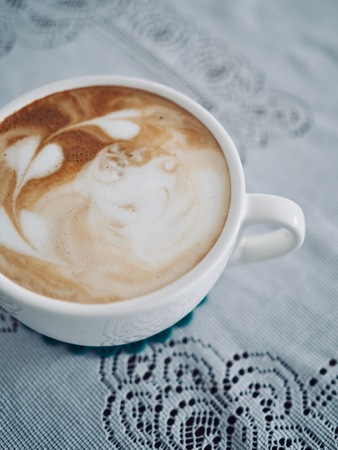1. Introduction: From Teapots to Espresso Machines
For generations, the United Kingdom has been synonymous with tea—afternoon teas graced by fine bone china, biscuit tins, and the gentle clinking of teaspoons in drawing rooms from Cornwall to the Scottish Highlands. The ritual of brewing, pouring, and sharing a cuppa is woven into the very fabric of British culture, representing hospitality, comfort, and even national identity. However, a quiet revolution is underway across these traditional tea-drinking regions. Over recent years, coffee culture has begun to percolate through British society, steadily gaining ground and transforming local palates. Artisanal coffee shops are now as common on high streets as historic tearooms once were, and the UK’s calendar is increasingly peppered with coffee-centric events—ranging from specialty tastings to latte art throwdowns. This article explores the fascinating evolution from teapots to espresso machines, delving into how coffee events are reshaping social landscapes in regions long defined by their devotion to tea.
2. Mapping the Shift: Regional Growth of Coffee Events
The UK’s long-standing reputation as a bastion of tea culture is now being gently stirred by a new wave: the proliferation of coffee events across regions once synonymous with cream teas and afternoon rituals. While London has traditionally led the charge in specialty coffee, it is the transformation in historically tea-centric areas like Yorkshire, Cornwall, and Kent that marks a true cultural shift. Coffee festivals, public cuppings, and barista competitions are no longer reserved for urban hubs; they are gaining impressive momentum from the northern counties to the Cornish coast.
Emergence of Coffee Events in Tea Regions
From bustling market towns to picturesque villages, local organisers and independent roasters are collaborating to introduce innovative coffee experiences. In Yorkshire—famed for its hearty brews—annual coffee festivals have doubled over the past three years. The Kentish countryside, often regarded as the Garden of England, now hosts regular cupping sessions where locals can sample single origins and delve into flavour profiles typically absent from traditional tearooms. Similarly, Cornwall’s artisanal movement has embraced pop-up espresso bars and latte art throwdowns alongside heritage tea rooms.
Regional Breakdown of Coffee Event Growth
| Region | Traditional Beverage Culture | Coffee Event Types | Recent Developments |
|---|---|---|---|
| Yorkshire | Strong black tea, milk-first tradition | Coffee festivals, public cuppings, brewing workshops | Doubled festival count; specialty cafés collaborating with local farms |
| Kent | Afternoon tea, fruit infusions | Cupping sessions, home barista courses | Monthly cuppings; regional barista championships introduced in 2023 |
| Cornwall | Cream teas (scones and tea) | Pop-up espresso bars, latte art competitions | Espresso carts at food markets; growing number of artisan roasters |
| The Cotswolds | Countryside teahouses, herbal blends | Coffee & pastry pairings, farm-to-cup talks | Boutique roasteries offering guided tastings on weekends |
| Northern Ireland | Belfast breakfast tea, light blends | Coffee appreciation evenings, sensory workshops | First major coffee festival launched in 2022; rapid growth in café culture |
Impact on Local Communities and Identity
This regional embrace of coffee events reflects more than just shifting beverage preferences—it signals an evolving social fabric. Where once village halls hosted only tea dances or WI meetings, they now serve as venues for filter brew masterclasses and origin talks led by visiting producers. For many communities, these gatherings foster connection between local identity and global coffee narratives. The rise of such events is not about replacing tea but about expanding horizons: celebrating craftsmanship while blending British tradition with contemporary tastes.
![]()
3. Driving Forces: What’s Brewing Behind the Change?
The transformation of traditional UK tea-drinking regions into burgeoning hubs for coffee events is no mere coincidence; it is fuelled by a confluence of dynamic factors reshaping local palates and social rituals. At the heart of this cultural evolution are shifting consumer preferences, which now favour variety, personalisation, and novel experiences over the predictability of classic tea service.
Evolving Tastes and Expectations
In recent years, British consumers have developed a more adventurous approach to beverages, seeking out unique flavour profiles and artisan craftsmanship. Younger generations in particular are drawn to coffees complexity, with single-origin beans and precise brewing techniques echoing the artisanal qualities once reserved for speciality teas. The rise of café culture has also fostered an environment where people gather not just for a drink, but for community, conversation, and creative expression.
Global Influences on Local Culture
The global popularity of coffee has permeated even the most steadfast tea regions. International travel, digital media, and the proliferation of global coffee chains have introduced new ways of enjoying coffee to British audiences. This influx of international trends has inspired local entrepreneurs to innovate—combining British sensibilities with global coffee culture to create distinctly local yet cosmopolitan events.
The Growth of Independent Coffee Roasteries
A critical driver behind this shift is the emergence and expansion of independent coffee roasteries across the UK. These establishments bring a technical edge to the scene, focusing on traceability, ethical sourcing, and precision roasting. Their commitment to quality has raised public expectations, making freshly roasted beans and expertly brewed cups a new standard even in towns once dominated by tea shops. Coffee festivals and tasting sessions often showcase these roasters’ skills, transforming casual curiosity into passionate appreciation among attendees.
Community and Sustainability
Finally, there is an increasing emphasis on community values and sustainability within the coffee movement. Many independent roasters champion direct trade relationships with growers and eco-conscious practices, resonating with contemporary British concerns about provenance and environmental impact. This ethical dimension further differentiates modern coffee events from traditional tea gatherings, drawing in audiences eager to align their consumption with their values.
Experience Over Beverage: The Unique Allure of Coffee Events
As the UK’s traditional tea-drinking regions embrace the coffee revolution, it becomes clear that coffee events offer more than just a cup of freshly brewed beans—they provide immersive, sensory experiences that appeal to a new generation of enthusiasts. Unlike conventional café visits, these events invite participants to engage directly with every stage of the coffee journey, making them both educational and deeply engaging.
The Interactive Appeal: From Roasting to Tasting
Coffee events across Britain’s tea heartlands often feature hands-on roasting workshops where attendees can take charge of the process, learning about green bean selection, roast profiles, and flavour development. This tactile approach demystifies the science behind the brew and gives participants an appreciation for the craft involved—an aspect traditionally absent from tea culture, where preparation is typically standardised.
Specialty Tasting Sessions: A New Social Ritual
Beyond roasting, specialty tasting sessions—commonly referred to as “cuppings”—have become a staple at UK coffee events. Here, guests explore a curated range of single-origin coffees, guided by skilled baristas who help dissect flavour notes and brewing methods. This communal exploration not only educates but fosters a sense of camaraderie among attendees, reminiscent of afternoon teas yet distinctly modern in execution.
Comparing Tea and Coffee Event Experiences
| Aspect | Traditional Tea Events | Coffee Events |
|---|---|---|
| Preparation | Standardised brewing, minimal audience involvement | Interactive roasting workshops, customisable processes |
| Tasting | Focus on blends, familiar flavours | Diverse single-origin profiles, guided tastings (“cuppings”) |
| Atmosphere | Formal or nostalgic social gatherings | Dynamic, educational, community-driven sessions |
| Cultural Focus | Heritage and tradition | Innovation and exploration |
The Broader Cultural Shift: Enthusiasts Redefining Social Spaces
This shift towards experiential coffee events signals a broader transformation in how Britons interact with their beverages. Rather than simply consuming, they are participating—learning about origin stories, sustainability practices, and even experimenting with brewing gadgets. For many in traditional tea-drinking regions such as Yorkshire or Cornwall, these events represent not just an alternative drink but an opportunity to join a vibrant new community grounded in discovery and shared passion.
5. Local Response: Communities Bridging Old and New Traditions
Across the UK’s storied tea-drinking heartlands, a quiet revolution is brewing. Local businesses and communities are responding to the rise of coffee events by innovatively weaving together the time-honoured rituals of tea with the dynamic culture of specialty coffee. This evolution is not simply about replacing one beverage with another—it is about fostering inclusivity and celebrating the nuanced artistry behind both cups.
Innovative Collaborations Between Tea Rooms and Coffee Roasteries
Many independent tea rooms, once steadfast in their traditional offerings, are embracing collaboration with local coffee roasteries. It is now common to find establishments where you can enjoy an expertly brewed single origin espresso alongside a classic cream tea. Some venues even host “tea versus coffee” tasting evenings, allowing patrons to explore terroir, aroma, and flavour development side by side—an approach that honours both traditions while cultivating a broader appreciation for specialty drinks.
Community Events Bridging Generations
Grassroots initiatives are proving instrumental in bridging generational divides. Community centres and village halls across Cornwall, Yorkshire, and Kent have begun hosting “brew socials” where residents can share stories over both locally roasted coffee and traditional loose-leaf teas. These gatherings create a space for intergenerational dialogue: older residents pass down family tea traditions while younger attendees introduce new brewing methods or innovative coffee pairings, weaving a richer social fabric.
Inclusivity: A Shared Table for All
Coffee events in historically tea-centric regions have taken on a distinctly British sense of inclusivity. Rather than creating competition between beverages, organisers strive to make everyone feel welcome at the table. Workshops might pair scones with pour-over coffees, or feature latte art demonstrations alongside talks on the history of afternoon tea. The overarching goal is to foster mutual respect among aficionados—celebrating craftsmanship whether it’s found in a perfectly pulled shot or a delicately steeped Darjeeling.
The Result: A Culture That Celebrates Diversity in the Cup
This blending of old and new rituals highlights the UK’s adaptive spirit. By embracing both tea and coffee cultures, local communities are not only preserving cherished traditions but also opening doors to exciting new experiences. As these inclusive events continue to flourish, they signal a future where diversity in the cup is as valued as heritage—and where every gathering is an opportunity to learn, taste, and connect.
6. Looking Forward: Coffee’s Future Alongside Tea in the UK
The future of Britain’s beverage landscape stands at a fascinating crossroads. For centuries, tea has reigned supreme, woven into the very fabric of British culture—from afternoon teas in stately homes to a builder’s cuppa on a rainy day. Yet, the surge of coffee events and specialty cafés in traditional tea-drinking regions signals a changing tide. As we look ahead, it is worth speculating: will coffee and tea find a harmonious balance, or is Britain poised for a decisive shift in its beverage hierarchy?
In many respects, coffee’s rise does not necessarily herald the decline of tea. Instead, both beverages are evolving to meet the demands of modern consumers. Younger generations are embracing coffee culture for its variety, social vibrancy, and artisanal appeal. Simultaneously, premium loose-leaf teas and innovative infusions are revitalising interest among those seeking authenticity and wellness benefits.
Looking through a technical lens, each drink offers unique sensory experiences. Coffee events often highlight roasting profiles, extraction techniques, and flavour notes ranging from chocolatey to citrusy—qualities that attract adventurous palates. Meanwhile, tea tastings delve into terroir, infusion times, and subtle aromatic complexities. The growing sophistication on both sides suggests there is ample room for coexistence and even cross-pollination between communities of enthusiasts.
From a cultural perspective, it is possible that regional identities will continue to shape preferences. In Yorkshire or Cornwall, tea rituals may persist as cornerstones of daily life. However, metropolitan areas—and increasingly, market towns—are adopting café culture as a symbol of cosmopolitanism and innovation. Events such as local coffee festivals and barista competitions provide platforms for interaction and education, nudging tradition toward modernity without erasing it.
Ultimately, the question remains: will coffee eclipse tea as Britain’s beverage of choice? Or will both drinks carve out distinct yet complementary roles? The likely scenario is an ongoing dialogue rather than outright rivalry—a dynamic interplay where each finds its own moment in the daily rhythm. Whether one prefers the contemplative calm of tea or the energising buzz of coffee, the UK’s evolving palate seems ready to embrace diversity over dominance.


